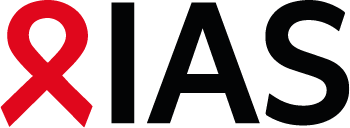Share Abstract
Utilization of HIV RNA tests for infant diagnosis in Brazil, 2000-2006
Abstract Content:
Objectives: Early HIV diagnosis in children allows administration of OI prophylaxis and/or ART to decrease morbidity and mortality, but requires use of viral molecular tests early in life. To understand patterns of access and current standards of HIV RNA test usage in Brazil, we conducted a retrospective analysis using the national SISCEL database.
Methods: The Brazilian STD/AIDS Program developed SISCEL in 1999, a laboratory database which integrates public health laboratories supporting Brazil’s universal ART program. HIV RNA testing records were examined for all children with at least one HIV RNA test before 24 months of age and born between January 2000 and June 2006.
Results: 22,053 HIV exposed children attending 557 clinics were identified. A total of 37,162 HIV RNA tests were performed in 70 public laboratories of the SISCEL network. 88.7% of children had a test before 12 months of age. Although two tests are recommended for early diagnosis, 8,334 (41.8%) children born before 2006 had only one RNA test performed. Mean age at first test was 5.4 months (166 days); and age at first test varied significantly by region. Of the 11,607 (52%) children that had a second RNA test performed, median time between first and second test was 131 days (range:1 –1462 days). Median time from specimen collection to results was 15 days. Agreement between first and second test results was 96.2% for RT-PCR, 89.9% for b-DNA, and 83.9% for NASBA.
Conclusions: In Brazil, where RNA testing is widely available in support of ART, early HIV diagnosis in exposed children using HIV RNA quantitative assays remains challenging. Strategies to encourage earlier and more frequent testing of infants are therefore necessary, especially in underdeveloped areas of Brazil where the system of care is less established.
Methods: The Brazilian STD/AIDS Program developed SISCEL in 1999, a laboratory database which integrates public health laboratories supporting Brazil’s universal ART program. HIV RNA testing records were examined for all children with at least one HIV RNA test before 24 months of age and born between January 2000 and June 2006.
Results: 22,053 HIV exposed children attending 557 clinics were identified. A total of 37,162 HIV RNA tests were performed in 70 public laboratories of the SISCEL network. 88.7% of children had a test before 12 months of age. Although two tests are recommended for early diagnosis, 8,334 (41.8%) children born before 2006 had only one RNA test performed. Mean age at first test was 5.4 months (166 days); and age at first test varied significantly by region. Of the 11,607 (52%) children that had a second RNA test performed, median time between first and second test was 131 days (range:1 –1462 days). Median time from specimen collection to results was 15 days. Agreement between first and second test results was 96.2% for RT-PCR, 89.9% for b-DNA, and 83.9% for NASBA.
Conclusions: In Brazil, where RNA testing is widely available in support of ART, early HIV diagnosis in exposed children using HIV RNA quantitative assays remains challenging. Strategies to encourage earlier and more frequent testing of infants are therefore necessary, especially in underdeveloped areas of Brazil where the system of care is less established.
